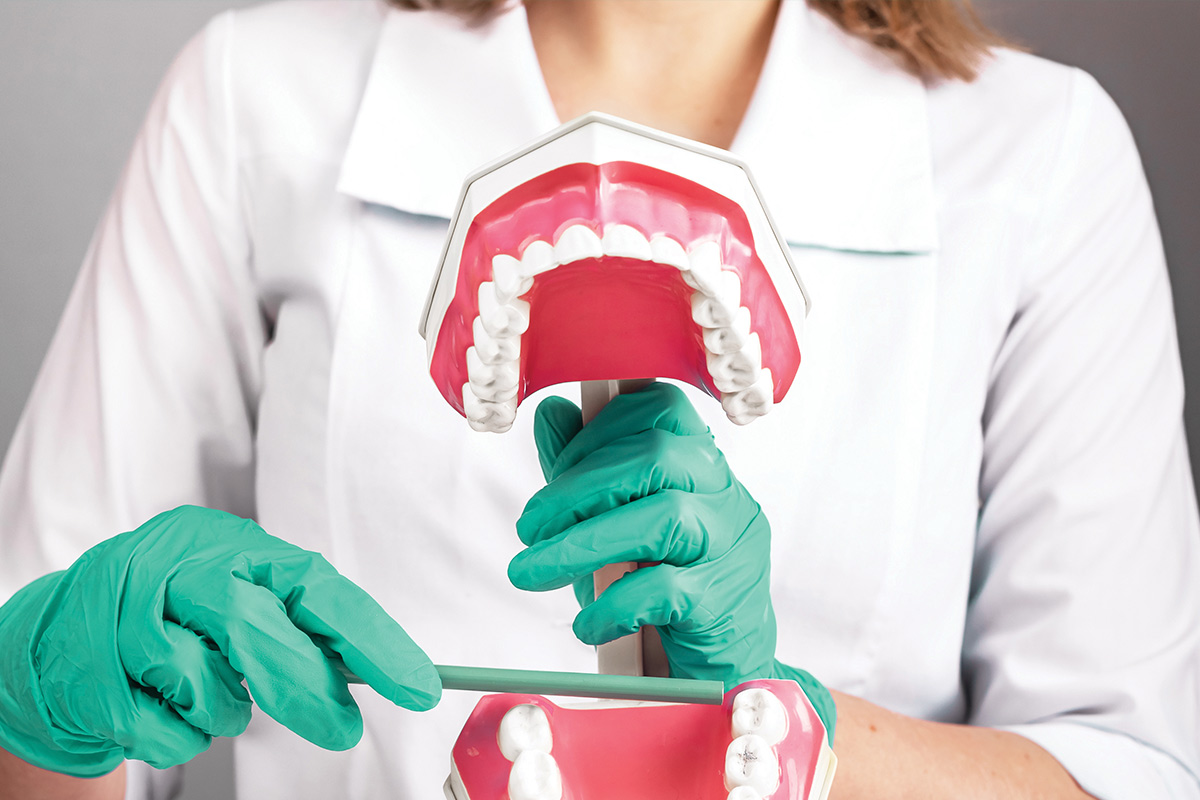This common surgery can prevent dental problems before they start.

What Are Wisdom Teeth?
An average set of adult teeth is comprised of 32 teeth. The third molars, also known as wisdom teeth, are located at the back of the mouth and are the last teeth to emerge. Wisdom teeth come in between the ages of 15 and 26 and because they are the last to emerge, they can become impacted, meaning there isn’t enough room for them to fit in the mouth. Even when wisdom teeth emerge without complication, they are rarely functional and because of their position in the back of the mouth, are more difficult to clean and are more susceptible to cavities.
Why Wisdom Teeth Removal Is Important
While wisdom teeth are often assessed and removed before problems arise, they can cause issues if left unmonitored. Impacted wisdom teeth can be painful and lead to the growth of bacteria, causing severe, sometimes life-threatening infections. As the teeth begin to emerge, they can put pressure on the neighboring molars and cause misalignment. They are also a common source of cysts as well as tumors. Other symptoms of impacted wisdom teeth include swollen gums, jaw ache, and pain when biting, chewing, and opening your mouth.
What to Expect From the Procedure
Wisdom teeth removal surgery is very common – nearly 85% of Americans have or will have their wisdom teeth removed. The procedure typically takes less than an hour, during which the patient will receive anesthesia to ensure a painless experience. Advancements in anesthesia medications and surgical techniques have aided the recovery process, including long-lasting local anesthetics that can reduce postoperative pain and the need for narcotics during the healing period.
If you have not had your wisdom teeth removed, talk to your dentist or oral surgeon. They can evaluate the position of your wisdom teeth and determine whether removal is advised as well as help coordinate the safest and most convenient time to have them removed.
An Expert Weighs In
Meet the Author

Rachel Studebaker, BA, English, Summa Cum Laude
Rachel Studebaker is a graduate of Lee University where she earned a Bachelor of Arts degree in English with a minor in advertising. While attending Lee, Rachel served as editor-in-chief and creative director for the school’s biannual publication Vindagua and was a member of Sigma Tau Delta English Honors Society. As managing editor for CMC Media & Marketing Group, she is responsible for the development and completion of 16 publications involving health, wellness, business, sports, and lifestyle articles published in print and online for HealthScope®, CityScope®, and Choose Chattanooga® magazines – premier publications serving S.E. Tennessee and North Georgia. Additionally, Rachel has led digital marketing initiatives for CMC Media & Marketing Group as well as the development of content for the introduction of Choose Huntsville™, Huntsville Resource & Relocation Guide™ for Huntsville, Alabama.

